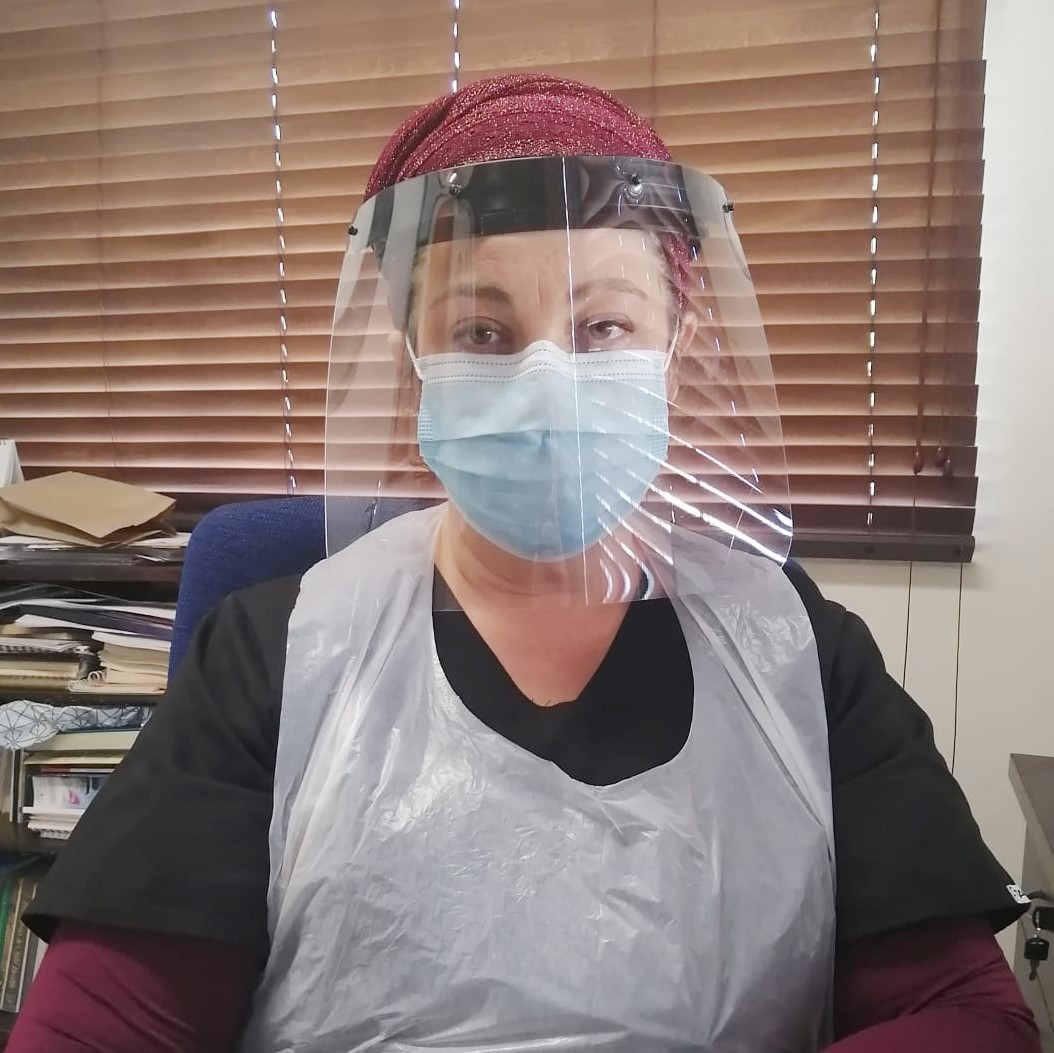click to dowload our latest edition
CLICK HERE TO SUBSCRIBE TO OUR NEWSLETTER


Published
4 years agoon
By
adminJORDAN MOSHE
“Our rooms are down 50%-60% in terms of patients,” says general practitioner Dr Daniel Israel who, together with Dr Vikki Davidoff, operates from Blubird Medical Suites in Melrose. “It’s not possible that everyone is suddenly better.
“There may be a degree of improved health because people are going out less, but the chance that they’re ignoring certain medical needs is worryingly high.”
Israel told the SA Jewish Report that though many patients seem to have accepted the reality of COVID-19, a stigma has been attached to doctors’ rooms, leaving patients anxious about visiting their family doctor for fear of infection.
This means that patients in need of routine care for conditions such as diabetes, hypertension, and other chronic conditions are potentially risking their health and could end up in hospital at a later stage.
“People who are presenting at hospitals and casualty wards are being admitted at more severe stages of their condition,” Israel says. “They’re not weighing up the risks properly when they choose to avoid going to the doctor altogether.”
Israel is part of a WhatsApp group of more than 120 GPs, many of whom are reporting the same phenomenon. Dr Tracy Paiken, based at the Linksfield Wellness Centre, is one of them.
“The beginning of winter tends to be very busy, but doctors across the board are seeing a dramatic decline in patients,” she says. “I’m worried that when they do choose to come in, they’ll be in a very bad state, and it’ll be more difficult to help them. It’s cause for concern.”
Paiken and Israel agree that many people have rearranged their priorities illogically, putting their health on the backburner to their own detriment.
“People won’t go to their doctor for fear of infection, but will gladly queue at Pick n Pay and come into close contact with dozens of strangers,” says Israel. “They can’t go a week without visiting the shops, but have decided that their doctor is a non-essential. They’re ignoring the things they usually take so seriously.
“Patients are typically comfortable to come in for almost any ailment,” agrees Dr Joanne Abrams, a Glenhazel-based GP. “Now, they’re second guessing themselves and choosing not to go. If they do decide to go, they’re usually extremely anxious.”
Patients who do muster up the courage to visit their GP aren’t typically presenting with colds or flu, both usually standard at this time of year. Rather, they’re seeking help for anxiety, insomnia, and other similar conditions caused by the many stresses of our new reality.
Says Paiken, “For the most part, the initial anxiety about the virus itself seems to have subsided. Instead, the stress caused by home schooling, financial limitations, and lockdown is affecting people quite badly, often resulting in lethargy, mental-health issues, and anxiety.
“Social distancing means we’re seeing far less upper respiratory illness. People aren’t going out as much, so the numbers are definitely lower. However, I’m worried about people who get more than just a cold but are too scared to go anywhere to have it seen to.”
Doctors have implemented various measures to help allay the concerns of patients, including the use of remote and virtual consultations, and increased hygienic practices at their premises.
“The whole way we work has changed,” says Abrams. “We’re focusing on doing whatever we can to make patients feel secure and comfortable when they consult.
“I usually operate from home with a receptionist, but now it’s just me. I see patients by appointment only, screen them over the phone in advance, and even examine some of them on a chair in my driveway to reduce risks and make them comfortable.”
Other measures include the elimination of waiting times, a two-metre distance between waiting room chairs, and the continuous sterilisation of the consultation space. Remote consultations, WhatsApp requests, video-call consultations, even photos of injuries have become the new normal. If the case is serious, however, the doctors urge their patients to see them in person.
“Remote consults help keep people calm and ensure they can continue engaging with their doctor in spite of being at home,” says Israel. “It works extremely well, and my practice has even managed nine cases of the virus virtually, all of which recovered without seeing a doctor face to face.
“There are still things you can’t put off indefinitely. There are conditions that need those regular appointments to address complications or the side-effects of medication. We’ve found that once a patient has broken that initial barrier and come in, they’re happy to come again.”
Doctors are custodians of preventative medication as well as curative, says Israel, and he urges people to stay on top of their basic health by working closely with their GP.
“We need to keep up with routine screenings and basic care,” he says. “For the sake of their well-being, people need to see a doctor in person when the need arises, calling in advance to ascertain what’s needed.”
People are learning to live within the new normal, says Abrams, all of us adapting to a reality that’s not going away anytime soon. Within this environment, she agrees that it’s vital that people prioritise their basic health.
“We’ve all learned to take new things on so as to function under the circumstances,” Abrams says. “It’s a long-term process. People know more now than they did at the outset. As doctors, we need to moderate this knowledge and step in where necessary to avoid self-management of critical conditions and keep in touch with our patients.”
